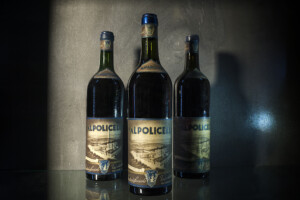
Market uncertainty, International trade policies, consumers’ new habits towards alcoholic beverages, the impact of climate change on production, reduced manpower and the increase in production costs for companies are the well known challenges the wine industry is facing. Peter Hayes, president of “Lien de la Vigne-Vinelink International”, an independent association, which was founded in 1992, is based in Paris and unites public and private research centers, producers and inter-professional structures, dedicated to collaborating, exchanging and transferring technological innovation for the wine sector. Hayes said that these challenges, however, are problems “that go beyond the influence or immediate control of the sector”. Therefore, it is necessary to find allies such as robotics and Artificial Intelligence.
“Lien de la Vigne-Vinelink International” has said that technology is an element that has valuable potential to deal with the ongoing issues. At the association’s recent annual meeting, the discussion was based on how Artificial Intelligence could have a positive effect in terms of efficiency in vineyard management (decision support tools), and in the winery (tools to monitor fermentation and refinement, predictive chemical analyses, efficient bottling chains), as well as on the marketing, commercial and business organization level (WineNews also analyzed innovations together with experts).
The annual meeting was also the occasion to renew the organization. Jean Pierre Megnin, as founder of the association in 1992, was awarded the title of Honorary President. Peter Hayes handed the presidency to the Italian Carlo De Biasi, his “number two” over the last ten years and who was the former General Manager of the Tuscan company, San Felice. De Biasi will have at his side as vice presidents, Mireia Torres from Spain, Joel Rochard from France and his Secretary-Treasurer will be Etienne Montaigne, also from France.
“Lien de la Vigne” brings together 106 members and 250 associates from 25 Countries, divided into two colleges. One college includes public scientists to support implementing programs - that come from, among others, the INRA of Bordeaux, Montpellier, Colmar, Angers, the Universities of Poitiers, Bordeaux, Dijon, Reims in France, Milan, Bari and Ancona in Italy, Madrid and Zaragoza in Spain, Cornell and Davis in the United States. There are also wine research stations such as Geilweilerhof in Germany or Changins in Switzerland, specialized research institutes such as the GWRDC in Australia, Agroscope in Switzerland and the American Vineyard Foundation in the United States. The other college includes professionals to support this activity and guarantee the independence of the association to define priority problems of the profession (including Schenk in Switzerland, Antinori, Ruffino, San Felice, Ferrari Trento, Bolla-Gruppo Italiano Vini, Terra Moretti, Masi, Zonin1821, Vivai Cooperativi Rauscedo in Italy, Torres in Spain, Amorim in Portugal, R. Mondavi and Gallo in the United States, Moët Hennessy and Roederer as well as the Interprofessional Association Centers of Champagne CIVC, Cognac BNIC and Interloire in France).
Copyright © 2000/2026
Contatti: info@winenews.it
Seguici anche su Twitter: @WineNewsIt
Seguici anche su Facebook: @winenewsit
Questo articolo è tratto dall'archivio di WineNews - Tutti i diritti riservati - Copyright © 2000/2026